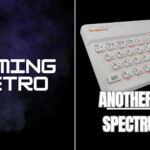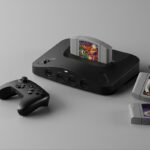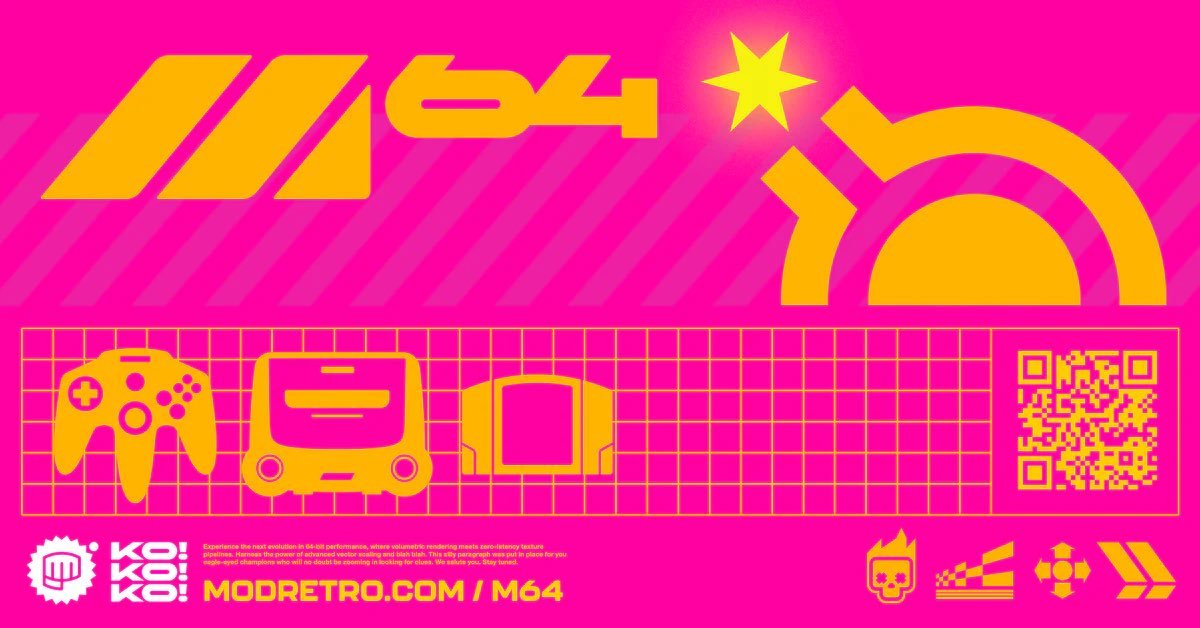The Nintendo 64 has always deserved better than muddy composite video and that goddamn controller that looks far better than it feels.
So when Analogue announced the 3D — a premium, FPGA-powered reboot of the console — many of us expected it to finally deliver the definitive modern N64 experience.
Then came the delays, and the second thoughts… I’m not against the Analogue 3D, but I do wonder if it is the best option for playing classic Nintendo 64 titles.
Well, now there’s a challenger: the ModRetro M64, a new N64 clone platform backed by Oculus founder Palmer Luckey. It promises crisp modern output, hardware accuracy, and a design that looks more like a videogame console and less like a minimalist art installation.
Even better, like the Analogue 3D, it works with original cartridges.
On paper, that already puts the M64 ahead of Analogue’s machine for a lot of people. But there is a big caveat, which we’ll come to.
What the ModRetro M64 is offering
Luckey has posted regular development updates, and the pitch is pretty clear:
- Physical cartridge support — no relying on ROM dumps
- Modern AV output (thankfully no composite in sight)
- A new controller option with a sturdier joystick design
- Hardware accuracy aimed at reducing emulation quirks
- Available in neutral colours rather than neon-tech aesthetic experiments
In short, the M64 is a console that aims to feel like playing a real N64, without the original’s headaches.
As someone who still has an N64, this appeals. There’s a point where nostalgia ends and practicality begins — and the M64 seems built specifically for that line.
ModRetro M64 vs Analogue 3D
Here is how the two Nintendo 64 console clones compare:
| Feature | ModRetro M64 | Analogue 3D |
|---|---|---|
| Cartridge support | Yes — native N64 carts | Yes — physical carts supported |
| Video output | Modern digital outputs (details TBD) | 4K output + advanced upscaling |
| Controller | Newly designed pad with improved thumbstick | Reimagined N64 controller (limited details) |
| System accuracy | FPGA accuracy | FPGA accuracy, Analogue’s speciality |
| Public gameplay footage | Yes — multiple demos shared | No — still unseen as of shipping start |
| Release status | In development, active public progress updates | Shipping has begun after long delay |
| Creator / company | Palmer Luckey / ModRetro | Analogue (long FPGA pedigree) |
| Business ethics concerns | Strong — Luckey’s defence/military tech ties | Minimal — focused on historical game preservation |
| Industrial design | Practical, retro-faithful aesthetic… probably. | Sleek, premium, more stylised design |
| Target audience | Retro purists wanting a reliable N64 experience with real carts | High-end collectors prioritising cutting-edge tech |
But how accurate is Analogue’s FPGA, really? According to Palmer Luckey, the ModRetro Chromatic performs better in this regard than the Analogue Pocket.
With regard to the ModRetro M64 vs Analogue 3D question, we don’t yet know which is better… but that test on the Game Boy Color clones is pretty compelling.
But yes — the Palmer Luckey factor
Here’s where things get complicated.
Luckey is a figure known for VR innovation… but also for military technology. His defence company, Anduril, builds autonomous weapons systems and border surveillance tech.
Many will understandably struggle with the idea of retro gaming dollars helping fund real-world warfare R&D.
That’s not a small footnote — it’s part of the purchasing decision.
So is it better than the Analogue 3D?
Well, that’s a difficult call without having each available to compare directly.
What we do know is that the M64 has clear gameplay demos (which the Analogue 3D did now), and is a more straightforward value proposition. It also has a design closer to the original console, and a communicative creator who seems excited to show progress.
Analogue, by contrast, has prestige hardware and proven engineering talent — but has offered very little public proof that the 3D can deliver. In fact, they’re one of the most silent tech companies on social media.
As someone who just wants to play N64 games without ghosting, stick drift, or mystery firmware promises, the M64 is the one I’d put money on first.
…But I’d do so with some moral discomfort. That tension is going to define how people choose between these machines.
Affiliate Disclosure: Some of the links in this post may be affiliate links, which means I may earn a small commission if you make a purchase through those links. This comes at no extra cost to you. Thank you for your support!
Christian Cawley is the founder and editor of GamingRetro.co.uk, a website dedicated to classic and retro gaming. With over 20 years of experience writing for technology and gaming publications, he brings considerable expertise and a lifelong passion for interactive entertainment, particularly games from the 8-bit and 16-bit eras.
Christian has written for leading outlets including TechRadar, Computer Weekly, Linux Format, and MakeUseOf, where he also served as Deputy Editor.
When he’s not exploring vintage consoles or retro PCs, Christian enjoys building with LEGO, playing cigar box guitar, and experimenting in the kitchen.







